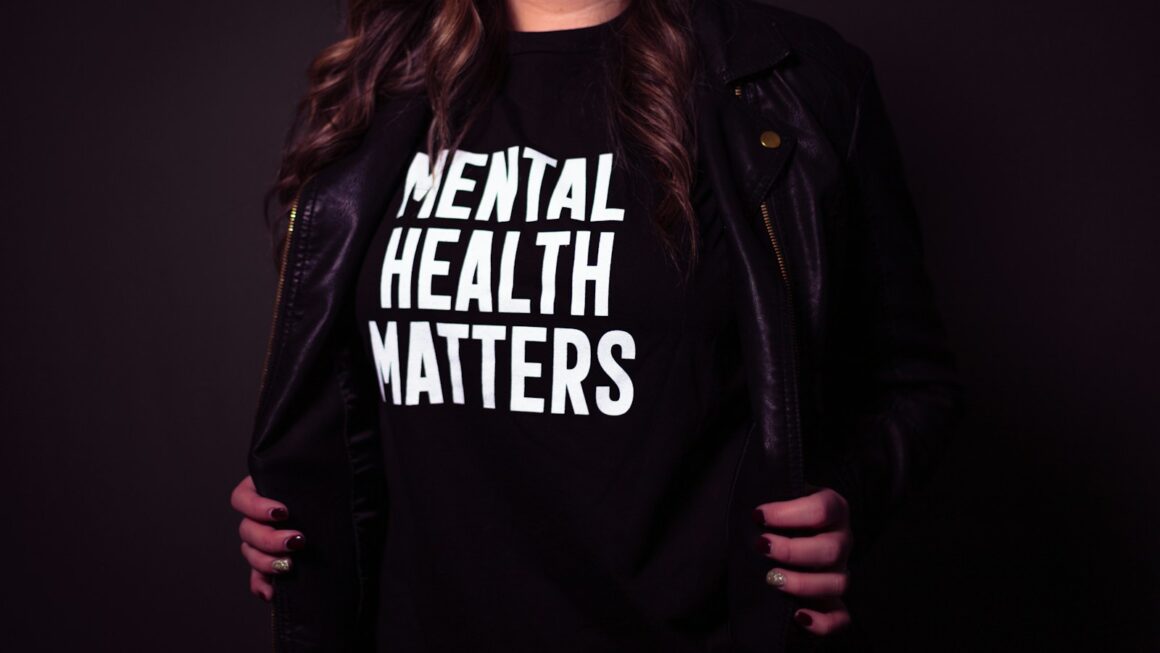Mental health encompasses a person’s emotional, psychological, and social well-being.
It influences how individuals think, feel, and behave in various aspects of their lives. A person’s mental health is vital for coping with stress, making decisions, and forming relationships with others. It is important to recognize that mental health is just as crucial as physical health in maintaining overall well-being.
Understanding mental health involves recognizing the signs and symptoms of various mental illnesses, such as anxiety disorders, depression, and bipolar disorder. These conditions can significantly impact a person’s daily functioning and quality of life. By increasing awareness and knowledge about mental health, individuals can better understand their own experiences and support those around them who may be struggling with mental health challenges.
The Impact of Stress on Mental Wellness
Stress can have profound effects on mental wellness, impacting various aspects of an individual’s cognitive and emotional functioning. When under chronic stress, individuals may experience heightened levels of anxiety, irritability, and difficulty concentrating. Moreover, persistent stress can lead to the development or exacerbation of mental health conditions such as depression and anxiety disorders.
In addition to the emotional toll, prolonged exposure to stress hormones like cortisol can also have detrimental effects on physical health, increasing the risk of cardiovascular problems, digestive issues, and weakened immune responses. The interconnected nature of mental and physical health highlights the importance of managing stress effectively to safeguard overall well-being.
Effective Coping Mechanisms for Stress
When experiencing stress, employing effective coping mechanisms is essential to maintain mental wellness. One such technique is practicing deep breathing exercises, which can help calm the mind and body during moments of heightened stress. Focusing on your breath and taking slow, deep inhales and exhales can bring a sense of relaxation and promote a feeling of grounding amidst challenging situations. Additionally, engaging in physical activities such as exercise or yoga can help release pent-up tension and boost endorphins, thus reducing stress levels and promoting a sense of well-being. Incorporating regular movement into your routine can also improve overall mental health by enhancing mood and reducing anxiety.
The Importance of Self-Care Practices
Self-care practices are essential for maintaining our overall well-being. When we neglect taking care of ourselves, we are more susceptible to stress, burnout, and various mental health issues. Prioritizing self-care involves engaging in activities that help us recharge, relax, and rejuvenate our mind, body, and spirit. By setting aside time for self-care on a regular basis, we can better cope with the daily challenges and pressures of life.
Self-care is not a luxury but a necessity for optimal functioning. It is a proactive approach to safeguarding our mental and emotional health. At times, we may feel guilty or selfish for dedicating time to ourselves, but it is important to remember that self-care is a fundamental aspect of maintaining balance and resilience. Whether it involves engaging in a hobby, practicing mindfulness, getting adequate rest, or setting boundaries, incorporating self-care practices into our daily routine is crucial for fostering a healthy relationship with ourselves.
Breaking the Stigma Around Mental Health
Mental health stigma remains a prevalent issue in society, perpetuating misconceptions and hindering individuals from seeking the help they need. Fear of judgment and discrimination often lead people to suffer in silence, afraid to open up about their struggles. This stigma can have devastating consequences, as it may prevent individuals from accessing vital resources and support systems that could aid in their recovery and well-being.
One of the key steps in breaking the stigma around mental health is increasing awareness and education within communities. By fostering open and honest conversations about mental health, we can challenge stereotypes and debunk myths that contribute to stigma. Encouraging empathy and understanding towards those facing mental health challenges is crucial in creating a supportive environment where individuals feel safe to share their experiences and seek help without fear of negative repercussions.

Seeking Professional Help When Needed
It is imperative to recognize when seeking professional help is necessary for the betterment of one’s mental health. Oftentimes, individuals may hesitate to reach out to a mental health professional due to stigma or misconceptions. However, it is essential to understand that seeking help is a sign of strength and resilience, not weakness. Mental health professionals are equipped with the expertise and tools to provide tailored support and guidance to address various mental health concerns.
When considering seeking professional help, it is crucial to prioritize finding a qualified and experienced mental health provider. This may involve researching different therapists, psychologists, or psychiatrists to determine who may best meet your needs. It is also important to establish open communication with the professional to ensure a collaborative and effective therapeutic relationship. By taking the step to seek professional help when needed, individuals can embark on a journey towards improved mental well-being and overall quality of life.
The Connection Between Physical and Mental Health
The intricate relationship between physical and mental health is a vital aspect of overall well-being that should not be overlooked. Research has consistently shown a strong connection between the two, highlighting how our physical health significantly impacts our mental state, and vice versa. It is important to recognize that the mind and body operate in unison, with each influencing the other in profound ways.
Physical activity, for instance, has been proven to have multiple benefits not only on our physical health but also on our mental well-being. Engaging in regular exercise releases endorphins, commonly known as the “feel-good” hormones, which help alleviate feelings of stress and anxiety. Additionally, maintaining a healthy lifestyle through proper nutrition and sufficient sleep plays a crucial role in supporting mental health by providing the body with the necessary resources to function optimally. By prioritizing both our physical and mental health, we can foster a harmonious balance that enhances our overall quality of life.
Building Resilience in the Face of Adversity
Struggles and challenges are inevitable parts of life that can test our mental fortitude. Building resilience in the face of adversity is essential for navigating through tough times and coming out stronger on the other side. It involves developing the capacity to adapt, bounce back, and grow from difficult experiences.
Resilience is not about avoiding stress or hardships, but rather about facing them head-on with a positive mindset and a determination to overcome obstacles. It requires cultivating self-awareness, emotional regulation, and the ability to seek support when needed. By building resilience, individuals can better manage stress, cope with setbacks, and maintain a sense of balance and well-being in the face of adversity.
Creating a Supportive Environment for Mental Wellness
Creating a supportive environment for mental wellness is paramount in promoting overall well-being. It involves fostering a safe and understanding space where individuals feel comfortable expressing their emotions and seeking help when needed. By fostering open communication and encouraging empathy and compassion, we can cultivate an environment where mental health concerns are met with understanding and support.
In this positive environment, it is essential to provide access to resources and information that promote mental wellness. This can include workshops, educational materials, and access to mental health professionals. By making these resources readily available, individuals are empowered to take charge of their mental health and seek help proactively, leading to a healthier and more resilient community.
Embracing Mindfulness and Meditation Practices
Mindfulness and meditation practices have gained significant attention in recent years for their ability to promote mental wellness and reduce stress. Incorporating these practices into your daily routine can help enhance self-awareness, reduce anxiety, and improve overall emotional well-being. By taking the time to focus on the present moment and practice mindfulness, individuals can cultivate a greater sense of inner peace and an increased ability to cope with life’s challenges.
Meditation, on the other hand, involves the practice of deep relaxation and concentration, often through techniques such as deep breathing or guided visualization. This practice can help calm the mind, reduce negative thought patterns, and improve concentration and focus. By incorporating meditation into your routine, you can create a sense of mental clarity and cultivate a more positive outlook on life.



